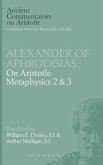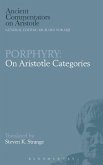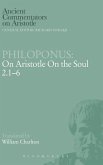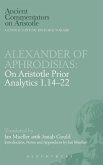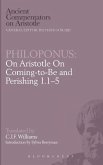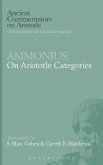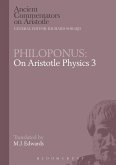The earlier part of the commentary by 'Philoponus' on Aristotle's On the Soul is translated by William Charlton in another volume in the series. This volume includes the latter part of the commentary along with a translation of Stephanus' commentary on Aristotle 's On Interpretation. It thus enables readers to assess for themselves Charlton's view that the commentary once ascribed to Philoponus should in fact be ascribed to Stephanus. The two treatises of Aristotle here commented on are very different from each other. In On Interpretation Aristotle studies the logic of opposed pairs of statements. It is in this context that Aristotle discusses the nature of language and the implications for determinism of opposed predictions about a future occurrence, such as a sea-battle. And Stephanus, like his predecessor Ammonius, brings in other deterministic arguments not considered by Aristotle ('The Reaper' and the argument from God's foreknowledge). In On the Soul 3.9-13, Aristotle introduces a theory of action and motivation and sums up the role of perception in animal life. Despite the differences in subject matter between the two texts, Charlton is able to make a good case for Stephanus' authorship of both commentaries. He also sees Stephanus as preserving what was valuable from Ammonius' earlier commentary On Interpretation, while bringing to bear the virtue of greater concision. At the same time, Stephanus reveals his Christian affiliations, in contrast to Ammonius, his pagan predecessor.
Hinweis: Dieser Artikel kann nur an eine deutsche Lieferadresse ausgeliefert werden.
Hinweis: Dieser Artikel kann nur an eine deutsche Lieferadresse ausgeliefert werden.

